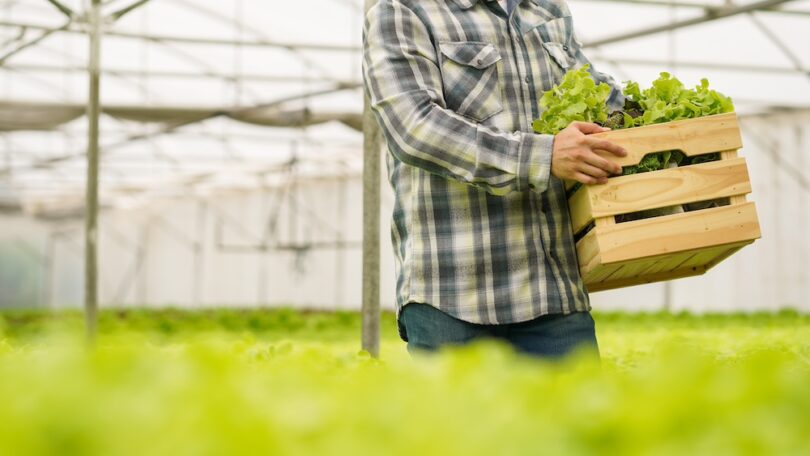In a rapidly evolving world, the role of farmers is more crucial than ever. Facing the twin challenges of climate change and food security, the agricultural community stands at the forefront of innovation and resilience. This blog post will guide you through the intricate relationship between sustainable agriculture, food security, and climate change, offering practical insights to empower your farming practices.
Understanding Sustainable Agriculture
What is Sustainable Agriculture?
Sustainable agriculture refers to farming methods that focus on producing food in a way that is environmentally friendly, socially responsible, and economically viable. These practices aim to meet current food needs without compromising the ability of future generations to meet theirs. Key principles include soil health, water conservation, and biodiversity.
Why Sustainable Agriculture Matters
The importance of sustainable agriculture cannot be overstated. It reduces environmental impact, preserves natural resources, and enhances food security. For farmers, these practices can lead to improved yields, resilience against climate shocks, and long-term profitability.
Real-life Examples of Sustainable Practices
Examples of sustainable agriculture include crop rotation, agroforestry, and integrated pest management. Farmers who have adopted these practices report healthier soils, increased biodiversity, and better yields.
The Link Between Sustainable Agriculture and Food Security
Ensuring Food Availability
Sustainable agriculture plays a critical role in ensuring food availability. By maintaining soil fertility and water resources, farmers can produce consistent and reliable yields, which is essential for feeding a growing global population.
Enhancing Food Access
Beyond production, sustainable agriculture also improves food access. By reducing dependency on costly inputs like chemical fertilizers and pesticides, it lowers production costs and makes food more affordable for consumers.
Stabilising Food Utilisation
Sustainable practices contribute to food utilisation by promoting diverse and nutritionally rich crops. This not only improves diet quality but also enhances the resilience of food systems against pests and diseases.
The Impact of Climate Change on Agriculture
Changes in Weather Patterns
Climate change is causing shifts in weather patterns, leading to unpredictable rainfall, prolonged droughts, and more frequent extreme weather events. These changes pose significant challenges for farmers, affecting crop growth and livestock health.
Rising Temperatures
Rising temperatures can reduce crop yields by accelerating plant development and increasing water stress. Heatwaves also threaten livestock, impacting their health and productivity.
Increased Pests and Diseases
Warmer climates and changing precipitation patterns can lead to the proliferation of pests and diseases. This increases the need for effective pest management strategies to protect crops and ensure food security.
How Sustainable Agriculture Mitigates Climate Change
Reducing Greenhouse Gas Emissions
Sustainable agriculture practices, such as no-till farming and cover cropping, help reduce greenhouse gas emissions. These methods sequester carbon in the soil, acting as a carbon sink and mitigating climate change.
Enhancing Carbon Sequestration
Agroforestry and perennial cropping systems enhance carbon sequestration, capturing CO2 from the atmosphere and storing it in trees and soil. This not only reduces greenhouse gas levels but also improves soil health and fertility.
Promoting Biodiversity
By fostering diverse farming systems, sustainable agriculture promotes biodiversity. This creates resilient ecosystems that can adapt to climate change and support a wide range of plant and animal species.
Practical Steps for Implementing Sustainable Agriculture
Assessing Your Farm’s Sustainability
Start by assessing the sustainability of your current farming practices. Identify areas where you can improve resource use efficiency, reduce waste, and enhance biodiversity.
Adopting Key Sustainable Practices
Implement practices such as crop diversification, organic farming, and water-efficient irrigation systems. These methods enhance resilience, reduce environmental impact, and improve productivity.
Leveraging Technology for Sustainability
Utilise modern technologies like precision agriculture, remote sensing, and data analytics. These tools provide valuable insights into soil health, crop performance, and resource use, enabling you to make informed decisions.
Building Resilience Through Diversification
Crop Diversification
Diversifying crops reduces reliance on a single crop and spreads risk. It enhances soil health, improves pest control, and provides multiple income streams.
Integrating Livestock and Crops
Integrated farming systems that combine crops and livestock offer numerous benefits. Livestock provide manure for fertilising crops, while crops supply feed for animals, creating a closed-loop system.
Agroforestry
Agroforestry integrates trees with crops and livestock, providing shade, wind protection, and additional income sources. It enhances biodiversity, improves soil health, and sequesters carbon.
Water Management in Sustainable Agriculture
Efficient Irrigation Systems
Adopt efficient irrigation systems like drip or micro-sprinkler systems. These methods deliver water directly to the plant roots, reducing water waste and improving crop yields.
Rainwater Harvesting
Implement rainwater harvesting techniques to capture and store rainwater for irrigation. This reduces reliance on groundwater and ensures a steady water supply during dry periods.
Soil Moisture Conservation
Practices like mulching and cover cropping help conserve soil moisture. They reduce evaporation, improve soil structure, and enhance water infiltration, ensuring crops receive adequate water.
Soil Health and Fertility
Organic Soil Amendments
Use organic soil amendments like compost and manure to improve soil fertility. These materials enhance soil structure, increase nutrient availability, and promote beneficial microbial activity.
No-Till Farming
No-till farming minimizes soil disturbance, preserving soil structure and reducing erosion. It enhances water retention, increases organic matter, and supports healthy soil ecosystems.
Cover Cropping
Cover crops protect soil from erosion, enhance soil fertility, and suppress weeds. They improve soil structure, increase organic matter, and provide habitat for beneficial insects.
Pest and Disease Management
Integrated Pest Management (IPM)
Adopt IPM strategies to manage pests and diseases sustainably. This includes using biological controls, crop rotation, and habitat manipulation to reduce pest populations.
Biological Control
Utilise natural predators and parasites to control pests. This reduces the need for chemical pesticides, protecting beneficial insects and enhancing ecosystem health.
Resistant Crop Varieties
Plant resistant crop varieties to reduce vulnerability to pests and diseases. This enhances crop resilience and reduces the need for chemical interventions.
Community and Knowledge Sharing
Farmer Field Schools
Participate in farmer field schools to learn about sustainable practices and share experiences with other farmers. This collaborative approach fosters knowledge exchange and enhances skills.
Joining Farmer Networks
Join farmer networks and cooperatives to access resources, training, and support. These networks provide valuable information, reduce isolation, and promote collective action.
Online Resources and Training
Utilise online resources and training programs to stay updated on sustainable agriculture practices. These platforms offer valuable information, tools, and support to enhance your farming practices.
Policy Support for Sustainable Agriculture
Government Incentives
Take advantage of government incentives and support programs for sustainable agriculture. These programs provide financial assistance, training, and resources to help farmers adopt sustainable practices.
Advocacy and Engagement
Engage with policymakers and advocate for supportive policies. By voicing your needs and concerns, you can influence policy decisions that promote sustainable agriculture.
Collaboration with NGOs
Collaborate with non-governmental organisations (NGOs) working in sustainable agriculture. These organisations offer resources, training, and support to help farmers transition to sustainable practices.
The Future of Sustainable Agriculture
Innovations in Sustainable Farming
Stay informed about innovations in sustainable farming. Emerging technologies, new crop varieties, and advanced farming techniques offer exciting opportunities to enhance sustainability.
Adapting to Climate Change
Adapt to climate change by implementing resilient farming practices. Stay informed about climate trends, invest in adaptive technologies, and diversify your farming systems.
Building a Sustainable Legacy
Contribute to building a sustainable legacy for future generations. By adopting sustainable practices today, you ensure a healthier planet and a secure food supply for tomorrow.
Conclusion
In the face of climate change and growing food demand, sustainable agriculture is not just an option—it’s a necessity. By adopting sustainable practices, farmers can enhance food security, mitigate climate change, and build resilient farming systems. Start your sustainable farming journey today and join a community of forward-thinking farmers dedicated to cultivating a greener future. To learn more and get personalised advice, connect with our experts and take the first step towards a sustainable and prosperous farming future.







